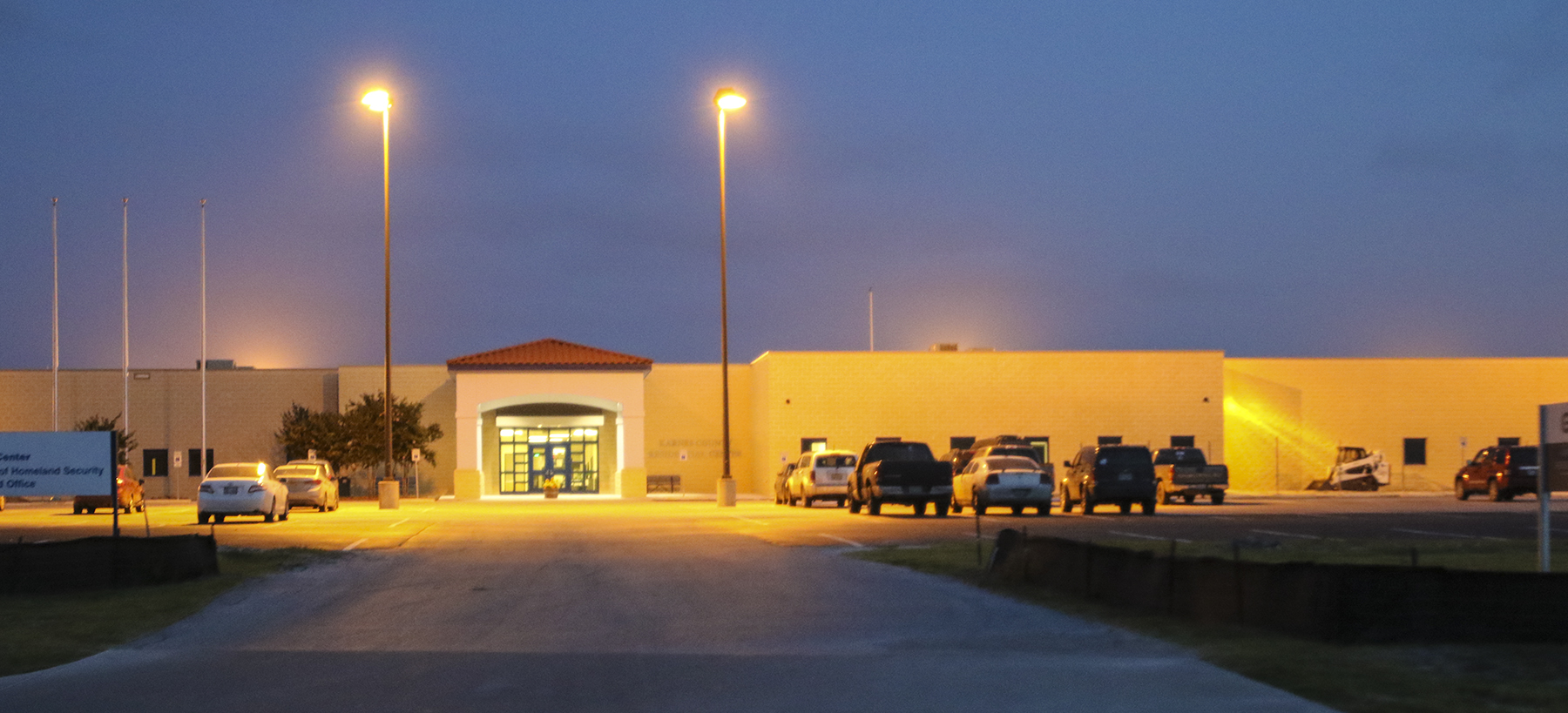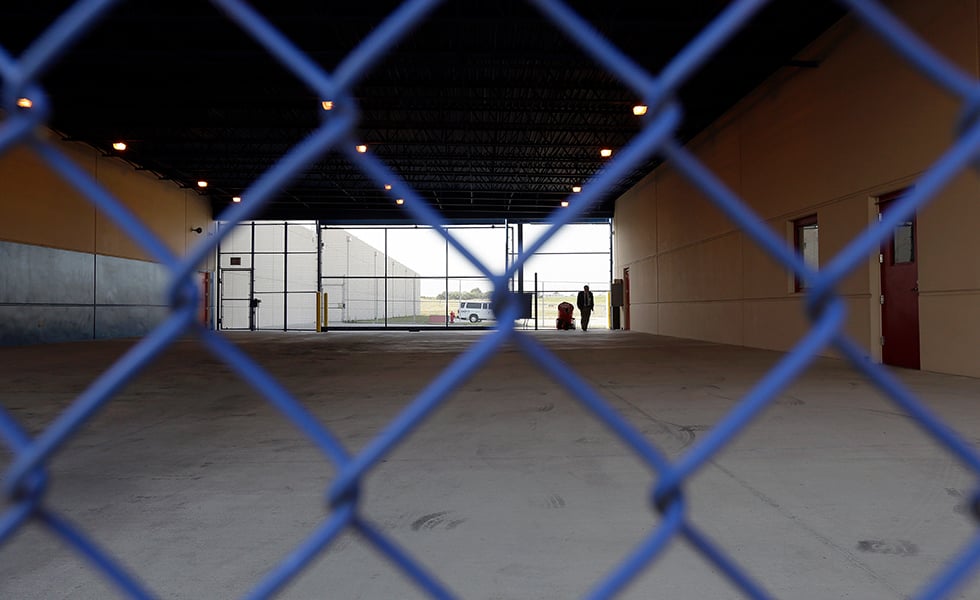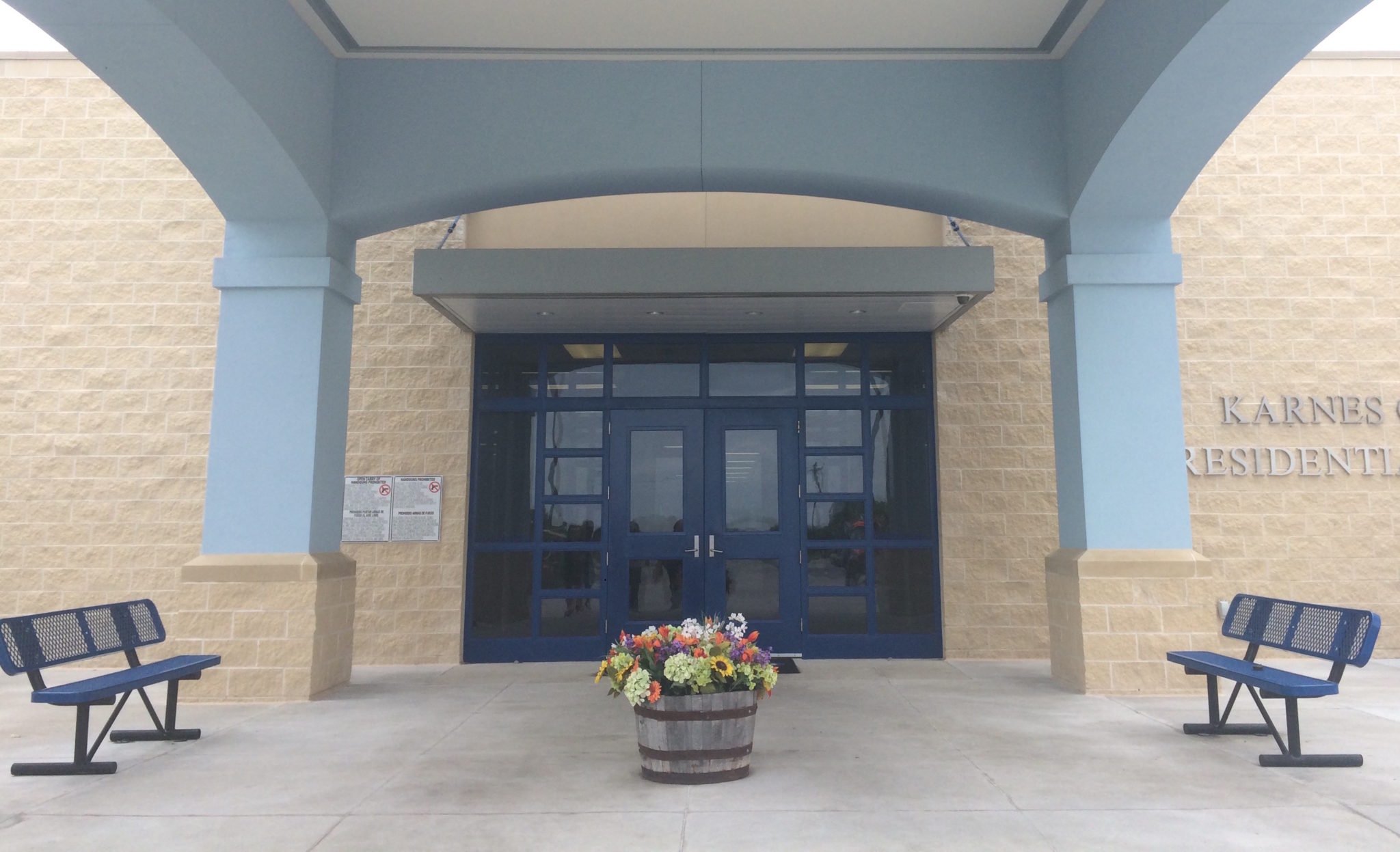
Hundreds of Central American Families Freed from Detention after Court Ruling
Volunteers are scrambling to house all the families, who were unexpectedly released after a ruling that prohibits Texas from licensing immigration jails as child care facilities.
Hundreds of Central American Families Freed from Detention after Court Ruling
Volunteers are scrambling to house all the families, who were unexpectedly released after a ruling that prohibits Texas from licensing immigration jails as child care facilities.
An immigrant shelter and a Mennonite church in San Antonio are hosting hundreds of Central American women and children released unexpectedly over the weekend from two detention centers in South Texas.
Volunteers are scrambling to house all the families, who now need to secure bus and airplane tickets so they can reunite with relatives in the United States. Some advocates suspect the mass release of immigrants is due to a court ruling last Friday that prohibits Texas from licensing immigration jails as child care facilities.
“It does seem more than coincidental. The ruling happened late Friday and on Saturday families started being released,” said Amy Fischer, policy director with RAICES, which runs the nonprofit immigrant shelter in San Antonio receiving the families.
Fischer said the shelter, Casa de Raices, normally houses 40 people but can accommodate 100 in an emergency. In the past RAICES has often arranged with U.S. Immigration and Customs Enforcement (ICE) to take in released families for 12 to 48 hours before they catch a bus or airplane to reunite with family members in the United States.
But this time the shelter staff were caught by surprise. It’s the first time they’ve received such a huge influx of immigrants at once, said Fischer. Because very few of the families have travel arranged, they are expected to stay in San Antonio longer than usual. A Mennonite church downtown is also housing many of the families, who are sleeping on air mattresses on the floor and in hallways.
Despite comments from RAICES saying the releases over the weekend are unprecedented, ICE said in a prepared statement that it was “scheduled as part of normal operations and not in response to the court ruling.”
ICE said it released 531 people last Saturday. Both of the agency’s South Texas facilities were near capacity before the release. Recently the Texas-Mexico border started seeing a large influx of Central Americans similar to the huge spike in 2014. As of Monday, December 5, ICE reported it had 606 people in its 800-bed Karnes County Residential Center facility and 1,787 in its 2,500-bed South Texas Family Residential Center in Dilley.
Fischer said RAICES was told by the agency to expect more busloads of released women and children this week.
“For whatever reason, the releases are a good thing,” said Bob Libal, director of Grassroots Leadership, a nonprofit immigrant advocacy group that was a plaintiff in the lawsuit settled last Friday. Grassroots Leadership, along with detained Central American women and children, sued the Texas Department of Family and Protective Services (DFPS) after it granted a child care license to private prison corporation Geo Group to fill the detention center in Karnes with women and children from Central America who were seeking asylum.
The 2,500-bed Dilley detention facility was also seeking licensing from DFPS before the lawsuit put its plans on hold.
Prison corporations, which run the facilities for ICE, need licensing from the state because of a 1997 federal court ruling that requires children to be held in a licensed child care facility and for no longer than 72 hours. With the influx of thousands of Central Americans in 2014, however, ICE began detaining children and parents en masse.
Libal said the state of Texas rubber-stamped the immigrant jails to placate the federal government, allowing for substandard child care regulations such as housing eight unrelated people in the same room.
But after last Friday’s court ruling, the state can no longer provide the certification, which means the two family immigrant detention facilities are out of compliance with federal law. Libal said he and many others would like to see the child detention facilities close for good. But it’s still unclear whether there’s any penalty for being out of compliance, or whether ICE will stop detaining children anytime soon.
The state is already appealing Friday’s ruling, Libal said. “The Obama administration shouldn’t be turning over detention camps to Donald Trump,” he said.

